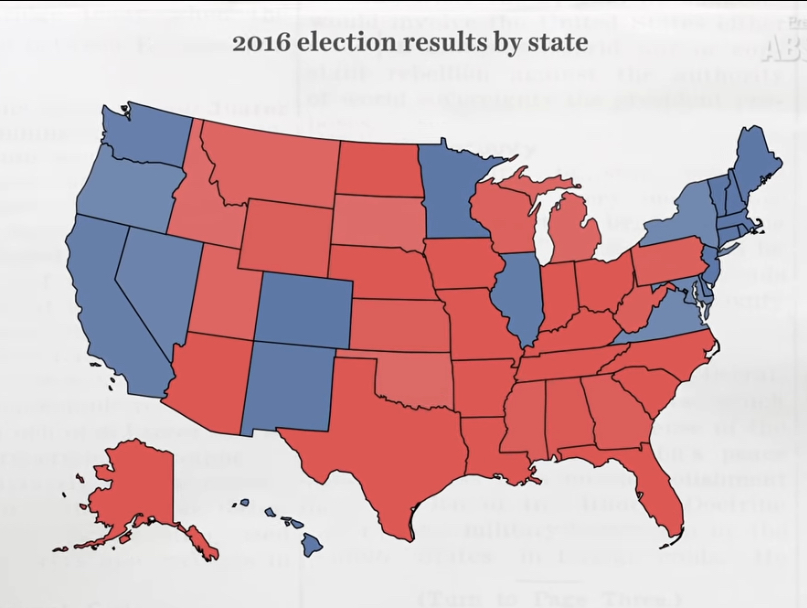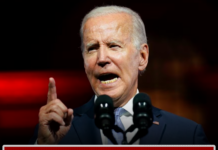Since the early 20th Century progressives have attacked the American Founding as obsolete. Progressives argued that the Constitution could not solve modern policy problems and in response they called for a vast expansion of federal power. Since the 1930s the federal government has expanded both in size and scope. This has come at the expense of federalism; the constitutional principle of power being divided between the national and state governments. As the federal government has assumed more power the states have not only lost sovereignty but have become dependent upon federal largess. Federalism matters, and not only over the division of power, but it goes directly to the heart of our constitution republic. The undermining of federalism continues today by those who not only want to expand federal power but abolish the Electoral College.
When the Founding Fathers met in Philadelphia in 1787, they designed a Constitution with a republican form of government that limited the powers of the federal government. In Federalist Paper 45 James Madison wrote: “The powers delegated by the proposed Constitution to the federal government are few and defined. Those which are to remain in the State governments are numerous and indefinite.” The 10th Amendment further solidified what Madison wrote in Federalist 45. Historian Allen Guelzo correctly points out that the “Constitution never set out to create a streamlined national government.”
The American Founders did not wish the states to have a diminished role under the Constitution. The late constitutional scholar James McClellan wrote that the “entire Constitution is actually honeycombed with provisions designed to protect the residual sovereignty and interests of the states and to give them influence in the decision-making process at the national level.”
This also includes the Electoral College. The Founders in considering the election of the executive rejected outright a direct national election. In designing the Electoral College, the Founders wanted to ensure that the selection of the executive was both independent of Congress and included the states. The Electoral College was designed to both protect the interests of the states and the people.
Although the presidential election is viewed as a national election, it is an election conducted by the fifty states. Voters within each state when they cast their ballot for a presidential candidate are voting for that candidate’s electors, who are chosen by political parties. The presidential candidate who wins the state wins that state’s slate of presidential electors.
The Electoral College system safeguards equal representation in presidential elections. This is similar to the United States Senate. The great compromise, the Connecticut Compromise, at the Philadelphia Convention of 1787, was based on resolving the disagreement over representation. The legislative branch would be a bi-cameral with the House of Representatives based on population benefiting larger states, and the Senate would have equal representation with each state having two members, thus benefiting smaller states. Interesting, before the 17thAmendment, members of the Senate were selected by state legislatures.
The United States Senate, just as with the Electoral College, preserves equal representation. The Senate protects small states and the citizens who reside in those states from being shutout of the governing process by states with larger populations.
Critics of the Electoral College are proposing to circumvent the Constitution by promoting the National Popular Vote (NPV). This is an effort to get state legislatures to pass legislation committing their states electors to support the winner of the national popular vote. At this time 15 states and the District of Columbia have passed legislation to join the NPV compact. This means that 196 electoral votes have been pledged and NPV will need 74 more electoral votes to reach 270, which is what is needed to win the presidential election.
Those opposed to the Electoral College argue that is archaic and undemocratic. Some of these same voices are also targeting the Senate. “Perhaps unsurprisingly, progressives now call into question not only the Electoral College but also the principle of equal representation in the U.S. Senate,” wrote Daniel McCarthy, editor of the journal Modern Age. Why should South Dakota with one member of the House of Representatives have two Senators and an equally powerful voice as those Senators from New York or California?
Americans need to understand the importance of federalism to our constitutional republic. Federalism is as essential as separation of powers and checks and balances. The Electoral College is the final “rock of Gibraltar” defense of federalism. “Federalism is in the bones of our nation and abolishing the Electoral College would point toward doing away with the entire federal system,” argues Guelzo.
What is at stake in the debate over the Electoral College is not only how we elect the president, but the future of the Constitution and whether we will adhere to the principles of the American Founding.
















